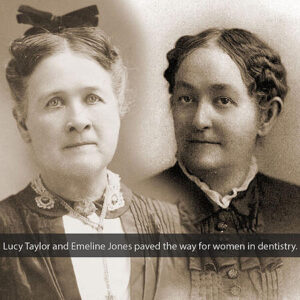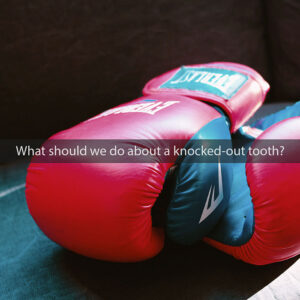April 11th, 2022

NEXT TO BRUSHING, the best tool we have for preventing tooth decay and gum disease is daily flossing, which is why it’s important to help our kids develop a flossing habit early on. Here are some great tips for parents with kids who are learning how to floss:
1. Explain what flossing does for their teeth. They will be more motivated to floss if they understand why it’s important.
2. Help them see flossing as one of the coveted Big Kid skills, like tying their shoes or riding a bike without training wheels. They’ll be excited to prove how grown up they are by flossing.
3. If using traditional floss, demonstrate pulling out the right amount (about eighteen inches) and loosely wrapping it around their middle fingers, with just an inch or two left in the middle to slide between teeth.
4. Help them get the hang of good flossing technique. Use a back-and-forth motion and form a C-shape around a tooth to slide the floss down to the gums without snapping. Flossing should be gentle, not painful!
5. Show them how to move the floss along so they’re using clean floss for each tooth. The point is to get rid of plaque, not just move it around!
6. If traditional floss is too challenging, use floss picks or flossers instead.
Disclaimer:
The content on this blog is not intended to be a substitute for professional medical advice, diagnosis, or treatment. Always seek the advice of qualified health providers with questions you may have regarding medical conditions.
March 28th, 2022

MARCH IS WOMEN’S HISTORY MONTH, so we’re celebrating two trailblazers for women dentists in North America. They paved the way for women in all dental specialties, including pediatric dentistry, orthodontics, and endodontics.
Lucy Hobbs Taylor
Lucy Hobbs Taylor, born in 1833, was the first woman to earn an actual dental degree in North America. After multiple rejections at dental schools, she found a professor to teach her privately and opened her own practice at age 28.
She was soon recognized by her male peers for her skill and gentle chairside manner and was accepted into the Ohio College of Dental Surgery. She received her degree in 1866, married a Civil War veteran, and trained him to be a dentist too! They established a successful practice together in Lawrence, Kansas.
Emeline Roberts Jones
Like many dentists in the mid-1800s, Emeline Roberts Jones, born in 1836, didn’t receive a formal degree. Because she was a woman, she likely would have been rejected by the newly established all-male dental colleges anyway. At age 18, she married a dentist. He was dismissive of the idea that a woman could be a dentist, but she took that as a challenge and trained herself behind his back using extracted teeth.
Eventually, she became his partner and even continued practicing dentistry after he died to support their children. She traveled around Connecticut with her portable dentist’s chair until finding a permanent home for her practice in New Haven, where she worked until retiring in 1915.
Disclaimer: The content on this blog is not intended to be a substitute for professional medical advice, diagnosis, or treatment. Always seek the advice of qualified health providers with questions you may have regarding medical conditions.
March 18th, 2022

MENTAL HEALTH AND physical health are tied together in ways we don’t always expect. That even extends to the relationship between oral health and stress. Fortunately, there are a lot of tools we can use to protect our smiles from the effects of stress.
Stress Could Be Behind a Teeth-Grinding Habit
Habitual teeth-grinding and jaw-clenching are called bruxism. Clenching and grinding are natural responses to frustration and stress for many people. The typical signs of bruxism include a sore jaw and, eventually, flattened chewing surfaces of the teeth. Bruxism brings with it significant oral health risks, and the people with this habit might not even notice they’re doing it — particularly for those who grind their teeth in their sleep.
Stress Can Compound the Symptoms of TMD
Another oral health condition stress can contribute to is temporomandibular joint disorder (TMD), a disorder of the muscles, joint, and nerves in the jaw that is associated with chronic facial pain. Stress is believed to be one of the factors leading to TMD, which has symptoms like frequent headaches, pain in the jaw joint, and popping and clicking of the jaw.
Stress Weakens the Immune System
A brief period of stress is something the body can deal with pretty well, but chronic stress puts a major strain on the immune system, making it harder to fight off oral health issues like infections, canker sores, dry mouth, gum disease, and cavities.
Make Oral Health and Hygiene a Priority
Considering all the negative effects stress can have, good oral hygiene habits become particularly important. That includes brushing for two minutes twice a day using a soft-bristled toothbrush and fluoride toothpaste, flossing once a day, and cutting back on sugar intake. Giving your teeth and gums better tools to fight off oral health problems might not be a solution to the stress in your life, but it can help you feel a little better and more in control.
The Dentist Is Your Best Ally
Dental health experts such as our team want to help our patients stress less when it comes to their oral health. We encourage you to keep up with your regular dental checkups and keep a prevention mindset when it comes to oral health issues rather than waiting until an issue gets much worse to finally get treatment.
We want to help our patients smile easier AND healthier!
Disclaimer: the content on this blog is not intended to be a substitute for professional medical advice, diagnosis, or treatment. Always seek the advice of qualified health providers with questions you may have regarding medical conditions.
March 4th, 2022

LOSING BABY TEETH is a totally normal part of a child’s development, but what happens if an adult tooth gets knocked out? This counts as a serious dental emergency.
If a whole tooth gets knocked out in one piece, there is a limited window (not much longer than an hour) in which the tooth has a chance to be successfully replanted, so the sooner the dentist sees it, the better. To give the tooth its best shot, put it back in the socket on the way there and hold it in place with a washcloth or gauze. If that isn’t possible, store it in cold milk.
What NOT to Do With a Knocked-Out Tooth
Here are a few important don’ts for knocked-out teeth:
- DON’T touch the root.
- DON’T let it dry out.
- DON’T scrub or clean it with soap, alcohol, or peroxide.
- DON’T put it on ice.
Any of these could kill the root, making the tooth impossible to replant!
What About KNocked-Out Baby Teeth?
Most of the time, when a baby tooth gets knocked out, it isn’t an emergency. Typically a dentist wouldn’t replant a baby tooth because that might create problems for the permanent tooth underneath. However, if it wasn’t loose beforehand, we recommend at least giving the dentist a call for some advice. There might be less obvious damage than what happened to the tooth.
Disclaimer: the content on this blog is not intended to be a substitute for professional medical advice, diagnosis, or treatment. Always seek the advice of qualified health providers with questions you may have regarding medical conditions.






 Website Powered by Sesame 24-7™
Website Powered by Sesame 24-7™
